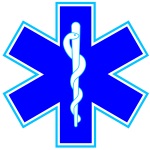Memo - Medical Clearance
March 31, 2025
Medical Clearance
We are receiving more calls from law enforcement to check a patient prior to being transported by law enforcement under a Baker Act. We have had a couple of problems and there will be more if we are not more careful.
First, there is no such thing as a "vitals check". You must touch that person to do vitals therefore that person is a patient. You will be writing a thorough run report. That includes history, observations, physical exams and evaluations.
Second, we all need to understand that patients without a psychiatric history that are having new behavioral problems may be having a medical problem. They are going to need more medical clearance than we can provide.
Third, we need to try to coach law enforcement in the concept that someone going for medical clearance at an emergency department does not need a Baker act because we have to take them anyway. They meet criteria for the incapacitated patient act (http://www.flsenate.gov/Laws/Statutes/2011/401.445) . We would like law enforcement to follow us if the patient is not combative. If the patient is combative, we may need their assistance inside the transfer unit. Either way, the law enforcement officer should go to the emergency department and give a good report to the emergency physician. That is a transfer of care and liability. Law enforcement is concerned that if they do not fill out a Baker act that they will have liability. It is not true. They can transfer the care of the patient and liability to the emergency department. It needs to be done in person.
Fourth, if the emergency department does not find a medical reason for the behavioral problems, they can initiate their own Baker Act.
401.445 Emergency examination and treatment of incapacitated persons.—
(1) No recovery shall be allowed in any court in this state against any emergency medical technician, paramedic, or physician as defined in this chapter, any advanced registered nurse practitioner certified under s. 464.012, or any physician assistant licensed under s. 458.347 or s. 459.022, or any person acting under the direct medical supervision of a physician, in an action brought for examining or treating a patient without his or her informed consent if:
(a) The patient at the time of examination or treatment is intoxicated, under the influence of drugs, or otherwise incapable of providing informed consent as provided in s. 766.103;
(b) The patient at the time of examination or treatment is experiencing an emergency medical condition; and
(c) The patient would reasonably, under all the surrounding circumstances, undergo such examination, treatment, or procedure if he or she were advised by the emergency medical technician, paramedic, physician, advanced registered nurse practitioner, or physician assistant in accordance with s. 766.103(3).
Examination and treatment provided under this subsection shall be limited to reasonable examination of the patient to determine the medical condition of the patient and treatment reasonably necessary to alleviate the emergency medical condition or to stabilize the patient.
(2) In examining and treating a person who is apparently intoxicated, under the influence of drugs, or otherwise incapable of providing informed consent, the emergency medical technician, paramedic, physician, advanced registered nurse practitioner, or physician assistant, or any person acting under the direct medical supervision of a physician, shall proceed wherever possible with the consent of the person. If the person reasonably appears to be incapacitated and refuses his or her consent, the person may be examined, treated, or taken to a hospital or other appropriate treatment resource if he or she is in need of emergency attention, without his or her consent, but unreasonable force shall not be used.
(3) This section does not limit medical treatment provided pursuant to court order or treatment provided in accordance with chapter 394 or chapter 397.
